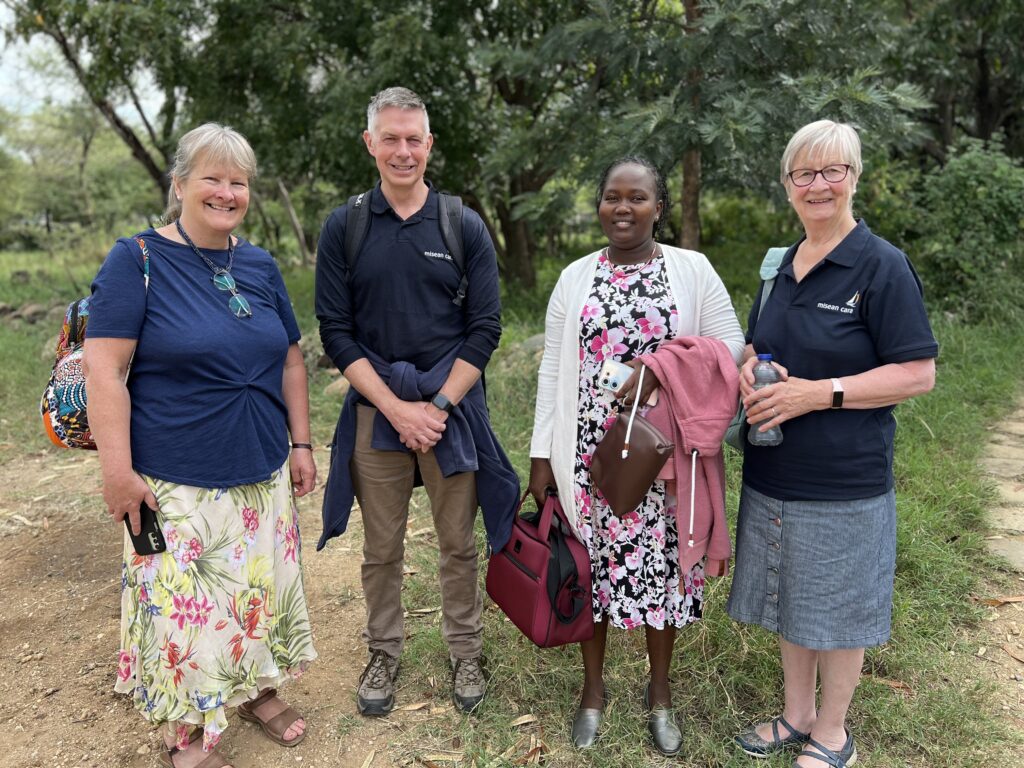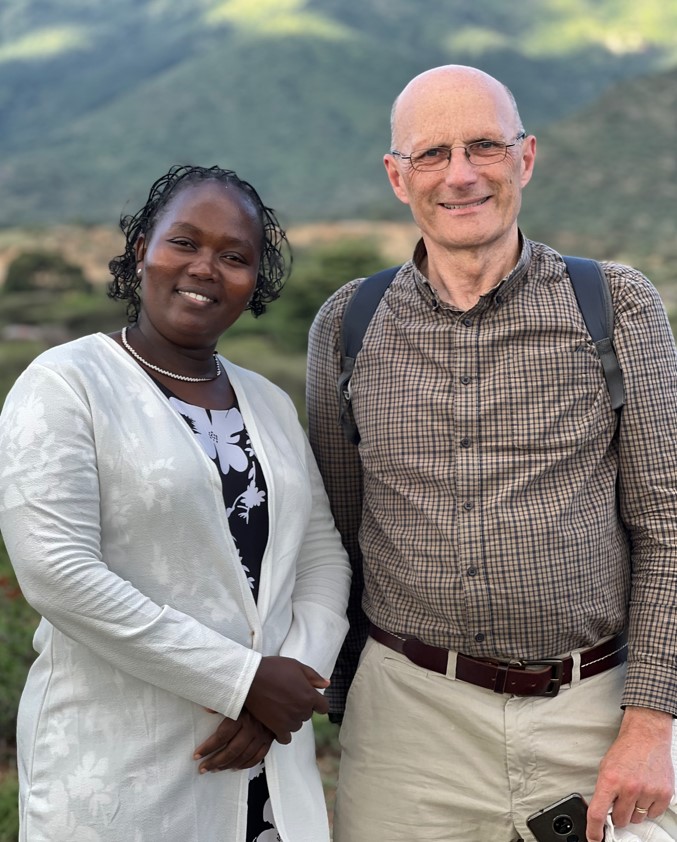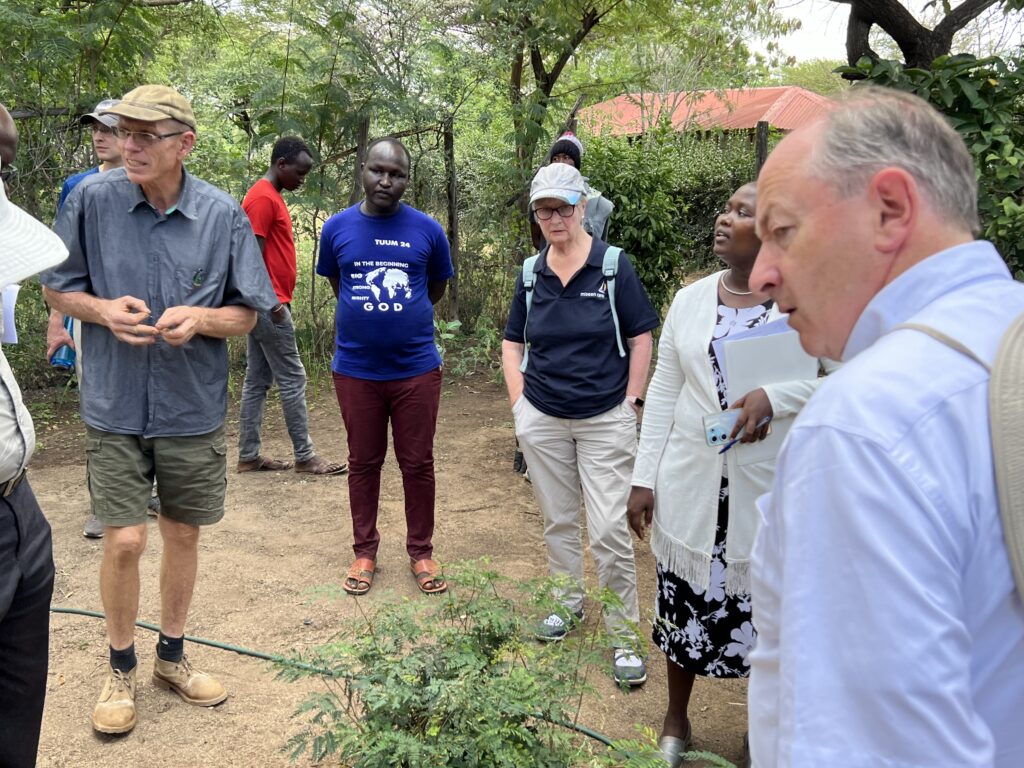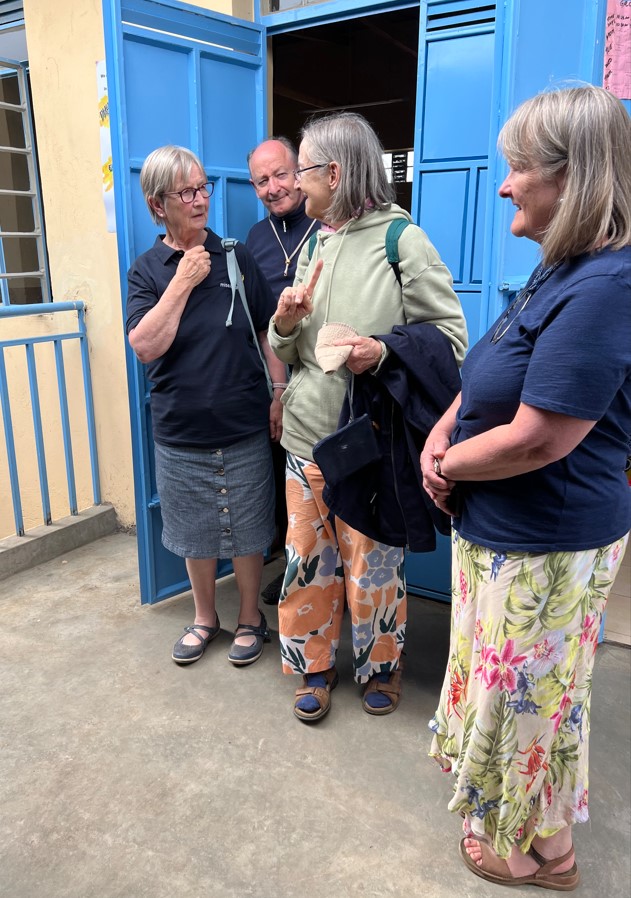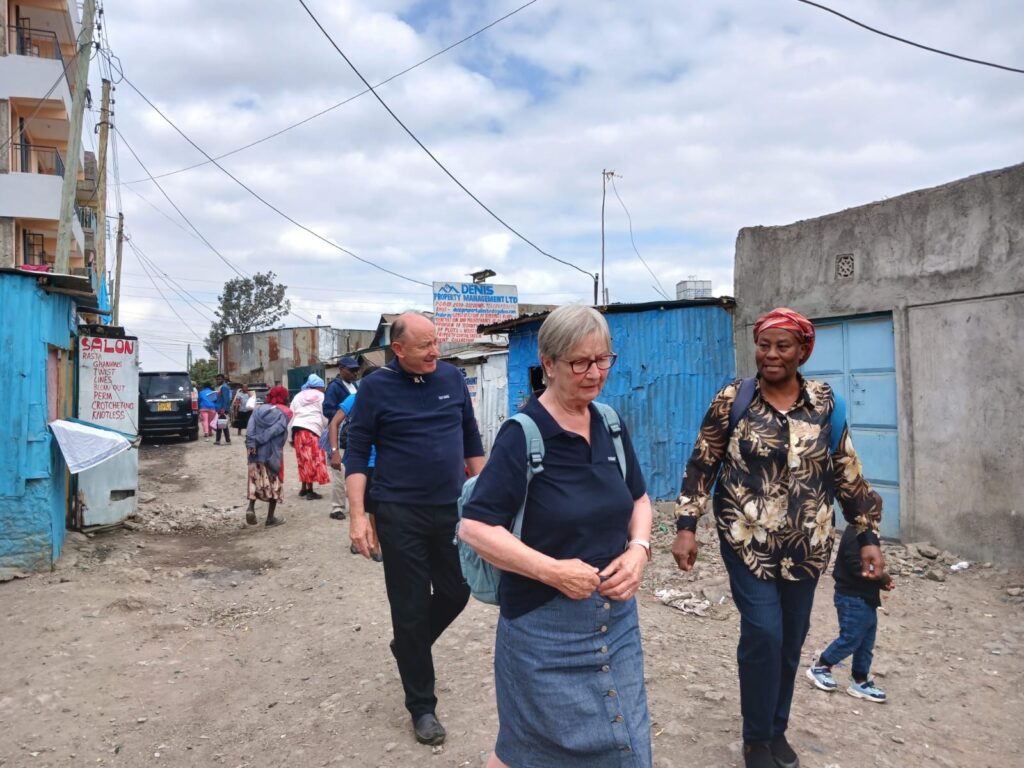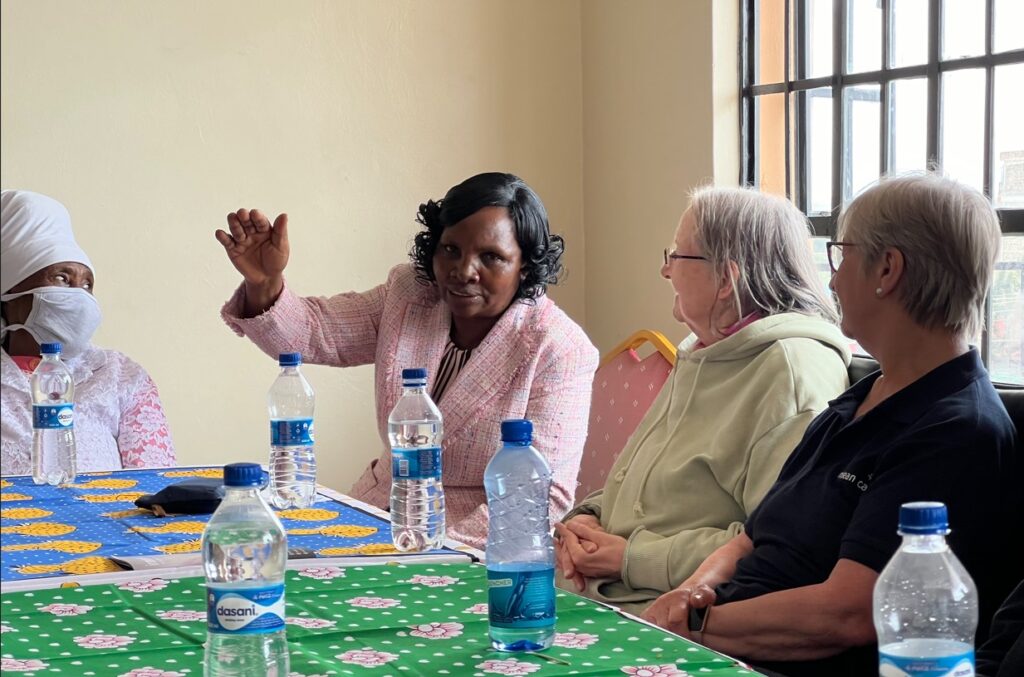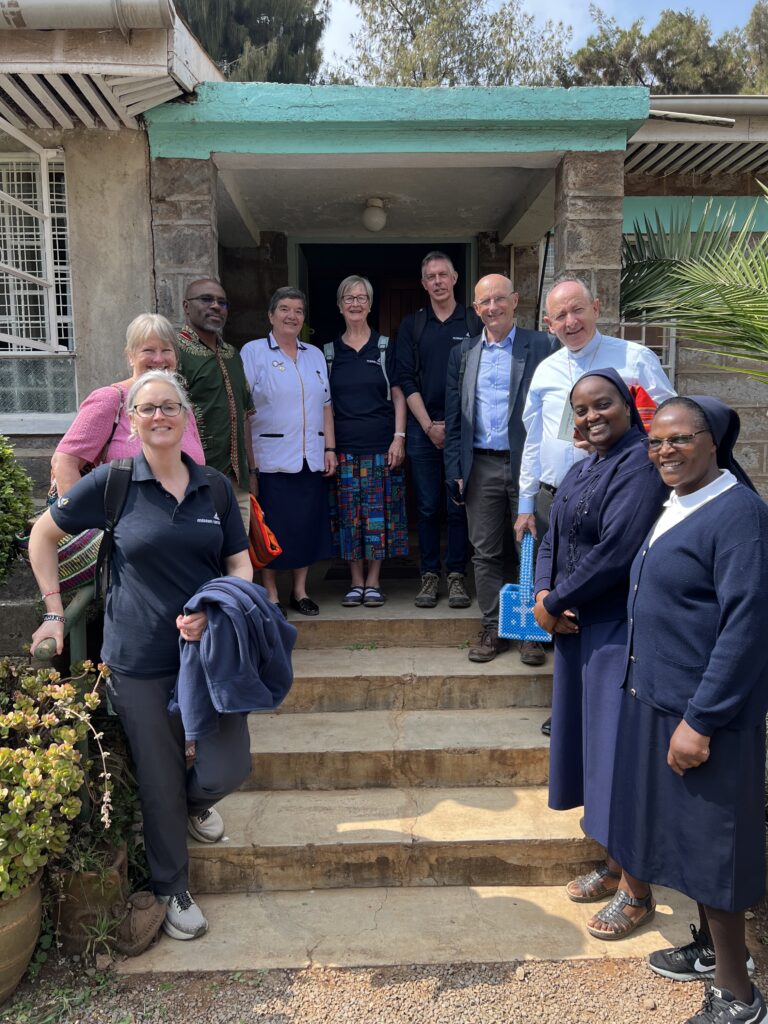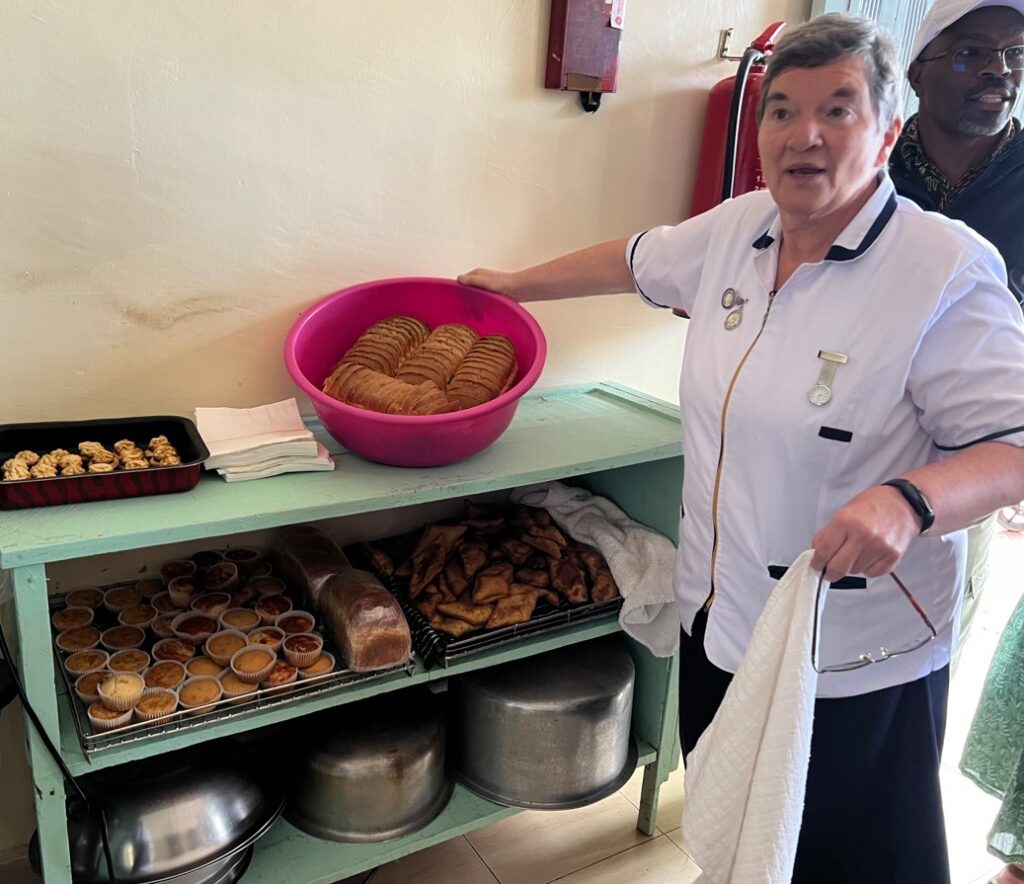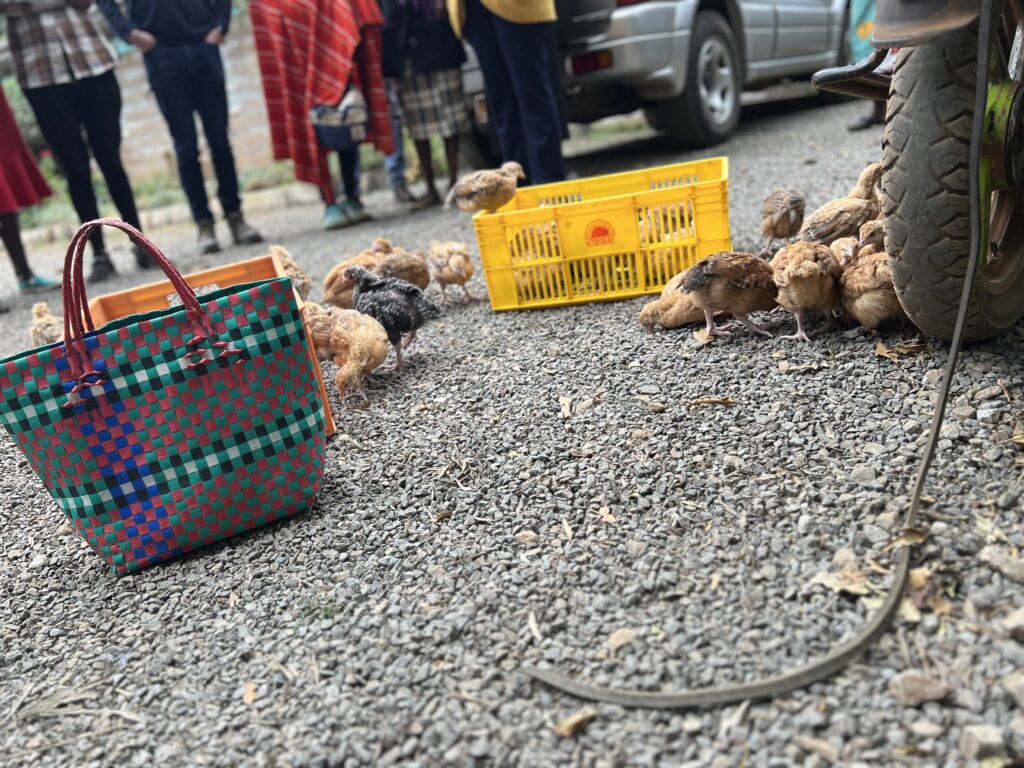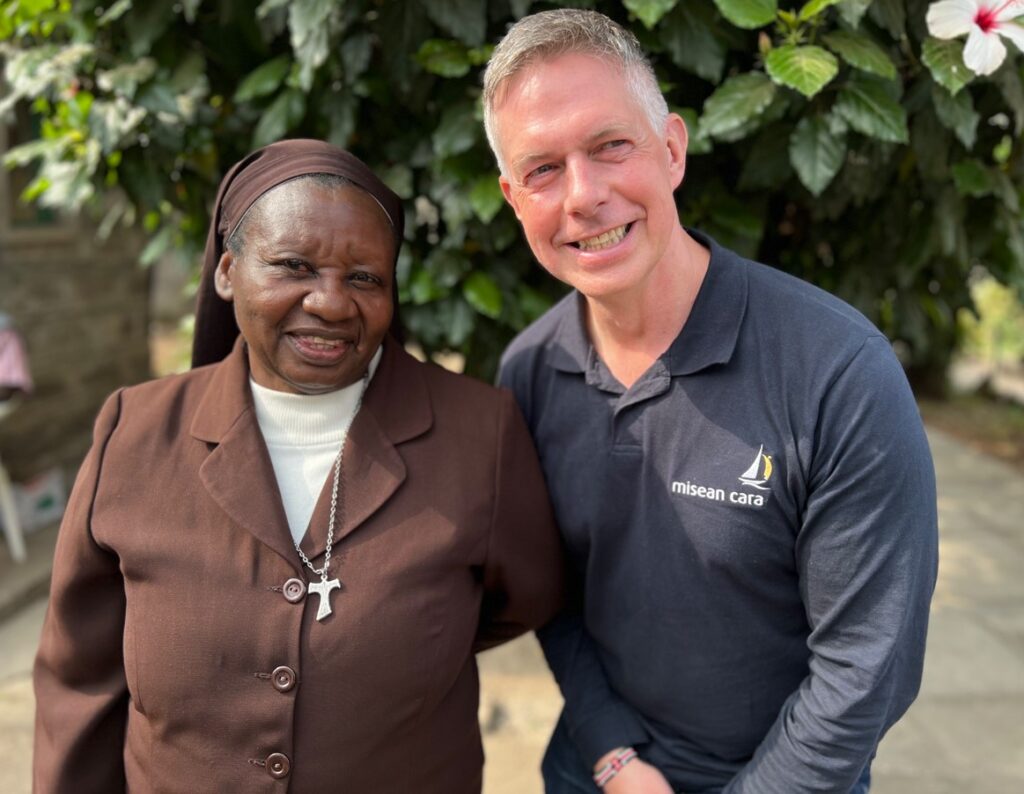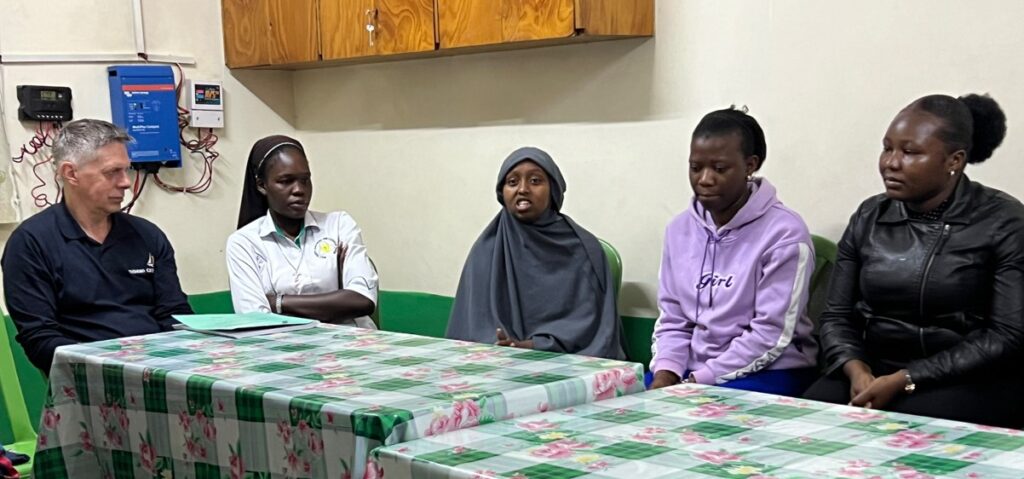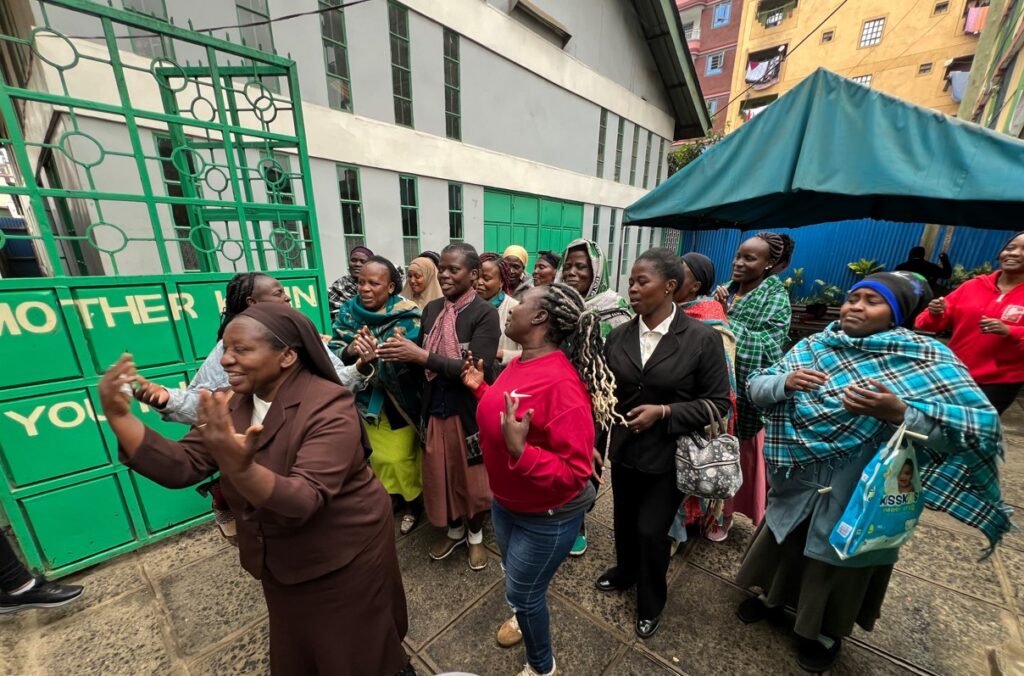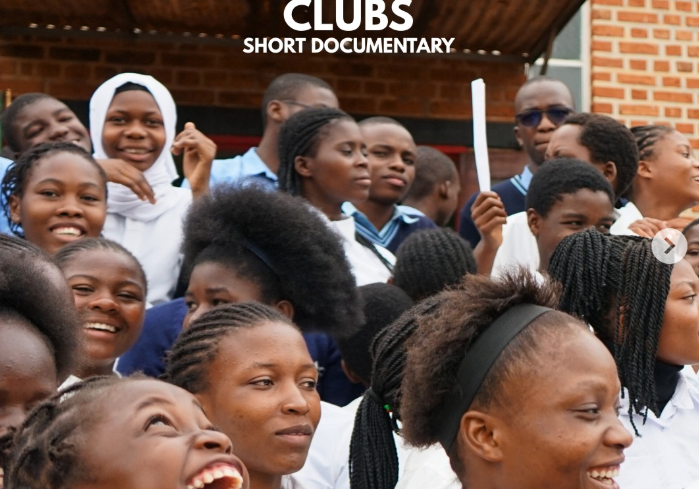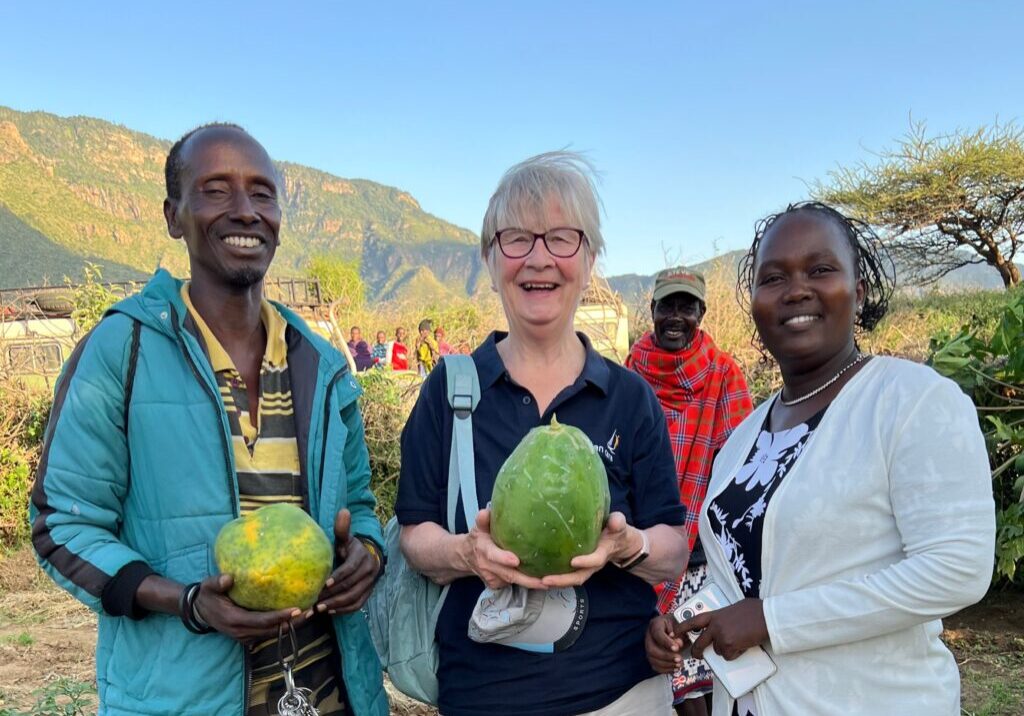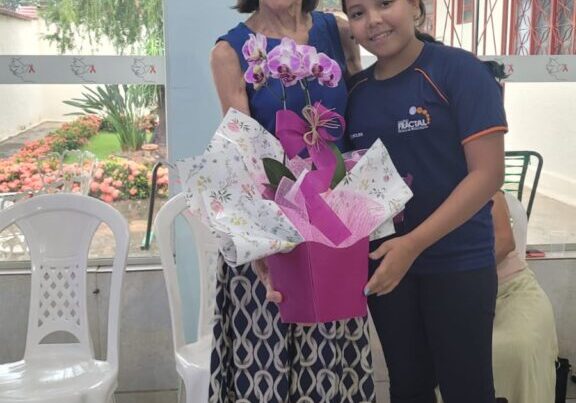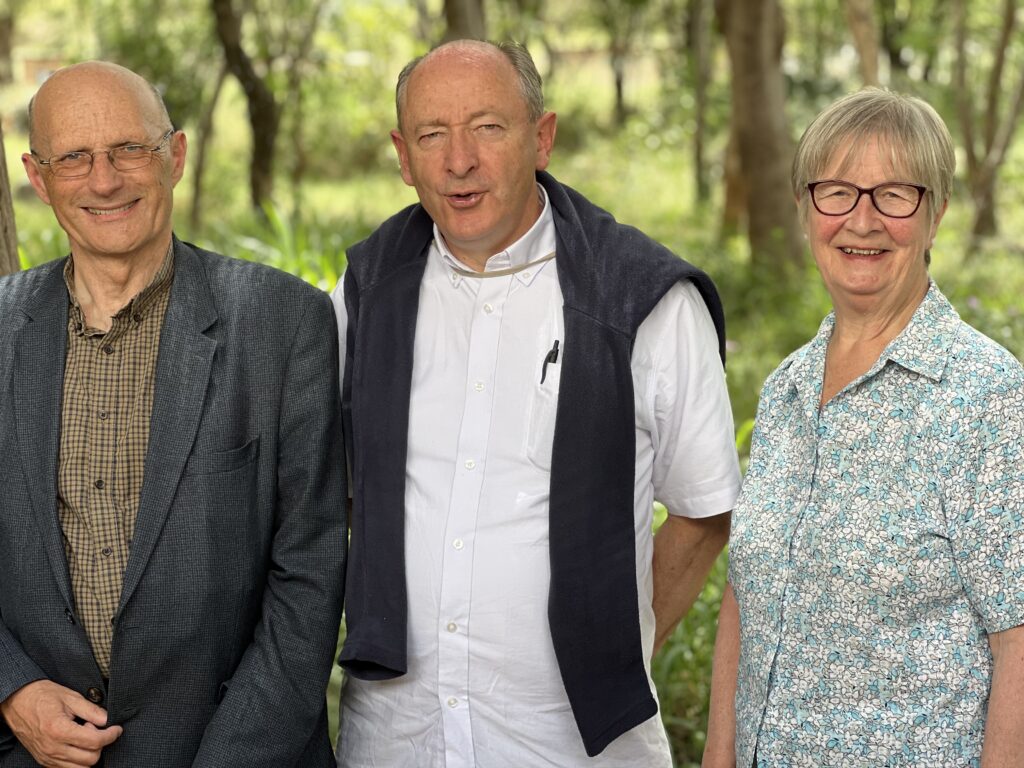
Sr. Josephine McCarthy, Presentation Sisters (right) in Samburu, Kenya with Reverend Uel Marrs (left) and Bishop Alphonsus Cullinan (centre).
I was a missionary in a remote part of the Andes mountains in Peru from 1990 to 1993 during the revolutionary campaign carried out by the Shining Path terrorist group. Their aim was to destroy Peru’s governmental and social institutions and replace them with a radical Marxist-Maoist regime, leading to the death of some 70k people. One of the reflections that emerged from Church groups at that time was that missionary groups had not engaged sufficiently with civil society.
As well as providing education, health/social care and pastoral support through parish development, missionaries took on difficult social issues. They often became the voice for people who had little agency – children with a disability, women in prostitution, prisoners, landless labourers, etc. these were run efficiently and effectively in structures that ran parallel with civil society, but didn’t engage sufficiently with civil and political entities.
Missionaries now work closely with local communities and I was very aware of this new approach during a recent visit to Kenya. I was privileged to be part of Misean Cara’s inter-Church visit to Kenya in September 2024. We visited four missions that have projects funded by Misean Cara:
• Samburu is situated in a vast, remote and sparsely populated area 350km north of Nairobi, and the SAAP (Samburu Awareness & Action Programme ) is supported by the Presbyterian Church under the direction of lay missionaries Stephen and Angelina Cowan and serves a population made up mostly of pastoralist herder communities, supporting education and children’s rights especially for girls, youth leadership capacity training, improved livelihood initiatives.
• Tujisaidie Community School serves 350 children aged three to fifteen in the poor and largely self-reliant informal settlement of displaced families in Soweto in the Kibera slum area of Nairobi. Since 1992, the Church Mission Society Ireland in partnership with lay missionaries from the Anglican Church of Kenya supports the school and local community
• The Daughters of Charity have been serving the semi-rural, impoverished community of Thigio, 40km northwest of Nairobi, for over 20 years. The KISIMA Special Needs Programme and School, provides education and care for 118 children, youth and adults with wide-ranging intellectual, developmental and physical disabilities. Parents, older teens and young adults also attend classes. There is a Day Centre for the elderly, a Women’s Development Project, a nine-bed hospice that provides palliative and end-of-life care for patients with terminal illnesses, a general medical clinic, a library and sports and arts programmes available to children from local schools.
• The Franciscan Missionary Sisters for Africa (FMSA) set up the Hands of Care and Hope (HCH) programme in 2007, serving the needs of people in the Huruma settlement, one of the poorest areas of Nairobi. They have built two primary schools and one secondary school, providing education for more than 1,000 children annually. Parents of students can also participate in life-skills classes and an income-generating programme that helps them develop the skills, mindsets and resources to provide better for their families. The Sisters and staff at HCH also run programmes to teach students, youth and parents about social justice and how to advocate for their human rights. They have also set up an Out-of-School Youth programme, that engages local youth in an eight-week course of personal development leading on to a vocational training course of their choosing, including a certified nursing assistant specialty, mechanic training, plumbing and electrics, and catering.
Several elements stood out for me during this visit, including how missionaries are approaching their work now and preparing for the future and the involvement of dynamic, committed women in the projects.
Succession planning and Empowering local leadership
All of the projects we visited are focussed on involving local communities in their plans, providing training and education for local leaders. Missionaries have an advantage as they live and work in the community and are immersed in the life of the local community. Their commitment is to local communities rather than to projects and they take a holistic view of the community and its needs. They know the problems and they are trusted by the communities.
In the Franciscan Missionary project we heard testimony from a young Muslim man who had come up through the school and was now giving back to the community as a teacher. In Soweto we met a youth leader who had been educated in the school and now wished to give back to the young people in his community. In the rural villages of Samburu we met young local leaders who had attended hands on training and were now in turn using their technical skills in mechanics, construction, plumbing etc in their local areas. Home gardens and diversity in fodder production are promoted to provide climate resilience.
Education and Empowerment of Women
I was really impressed by the strong representation of women we met in the different projects who are capable, articulate and providing strong leadership in their communities. In Samburu we met Faith who had herself been supported by the Mission as a young girl banished by her family because she would not submit to an arranged marriage at 12 years of age. She is now dedicated to promoting Children’s Rights in the rural villages and especially the right to education for young girls and their protection from cultural practices like early marriage and FGM. Early marriage is the greatest threat to the education of girls as a girl of 12 handed over in marriage means a dowry of a cow or a few goats or even a camel for the family. Faith is now considering a possible involvement in local politics in order to share her skills and talents.
In Thigio, we met carers who have an extraordinary dedication to the special needs children they care for. One young woman told me she feels she was born for this work. In Harumu, we saw the fruits of a group of women who have been active in the community for over thirty years. Everywhere, there was evidence that the missionaries are passing on their passion and commitment to their partners and collaborators in the community and are actively planning for a transfer to local leadership. The Franciscan Sisters and the Daughters of Charity spoke of their training programmes for their local Sisters, what they call their ‘succession plan’, ensuring proper governance and oversight as the work continues.
Finally, I was inspired by the courage and resilience of all the missionaries we met in the face of the many challenges, dilemmas and paradoxes that face those working with the poorest, those furthest behind and most difficult to reach. The services they provide are non-denominational but the faith dimension of their lives and work was evident and sustains their courage and resilience and commitment, whether in the rural areas of Samburu County with non-existent road infrastructure or in the urban slums of Nairobi, where the waste water is flowing in open drains outside houses and there is a total lack of government support for communities living in such poverty.
